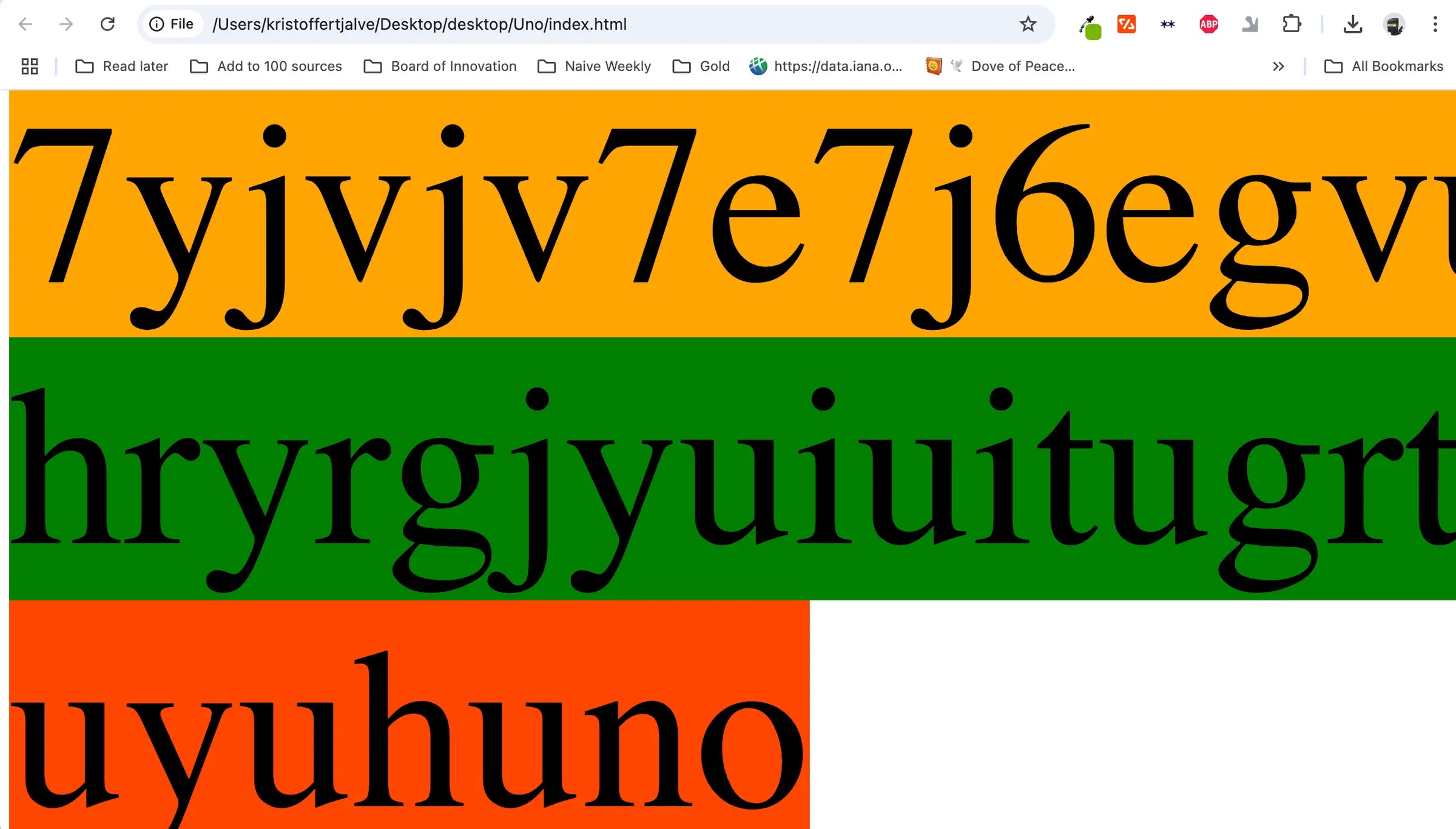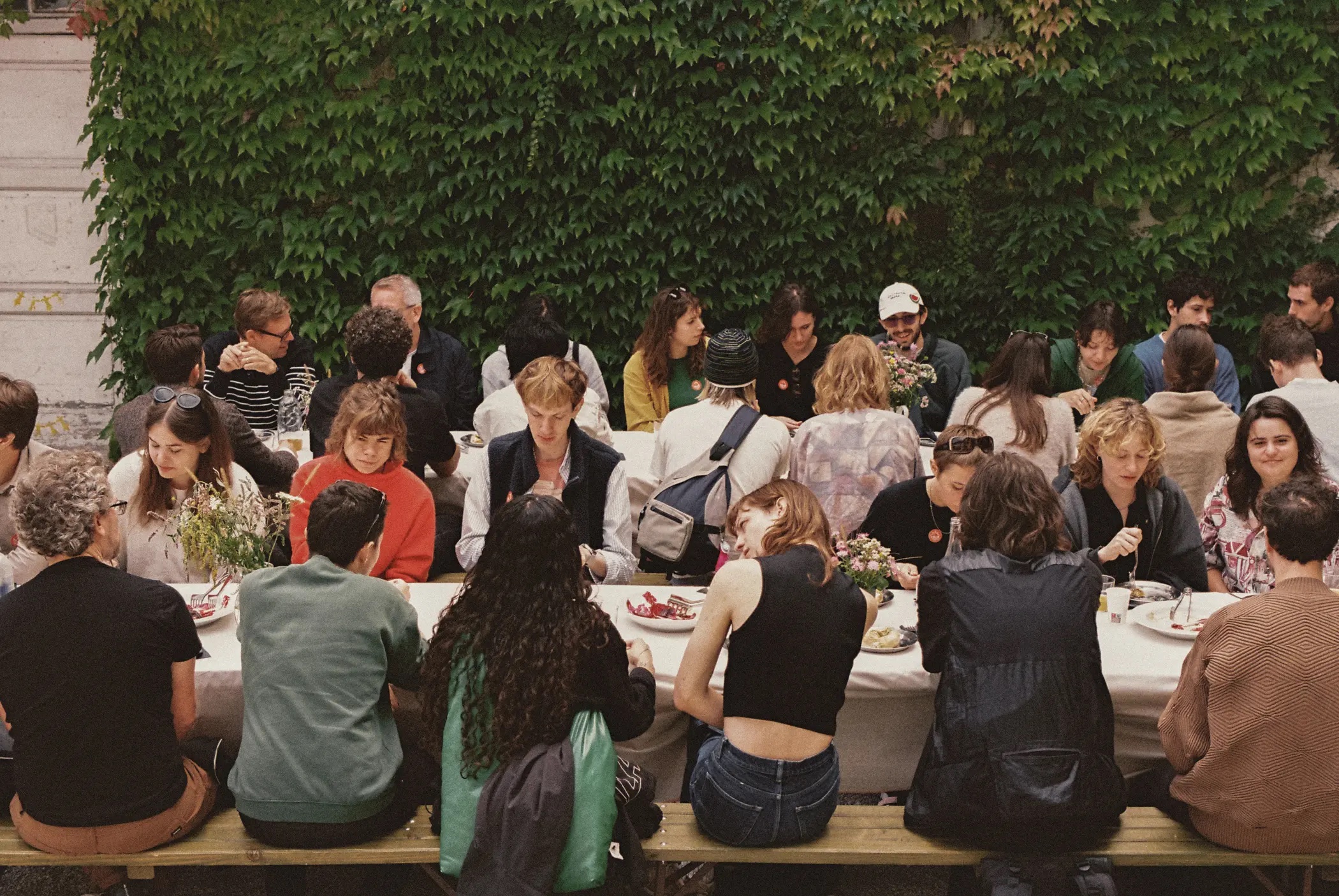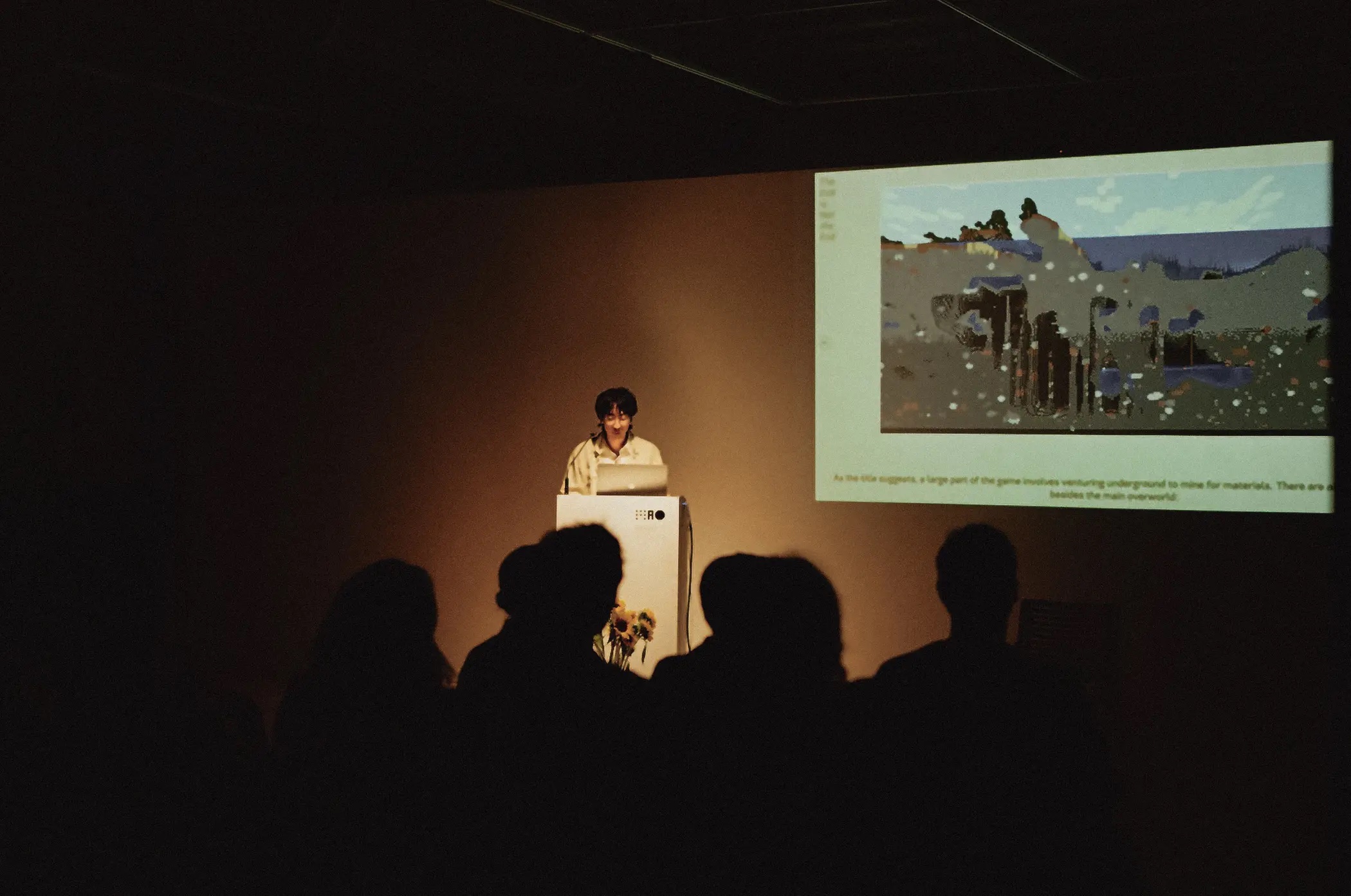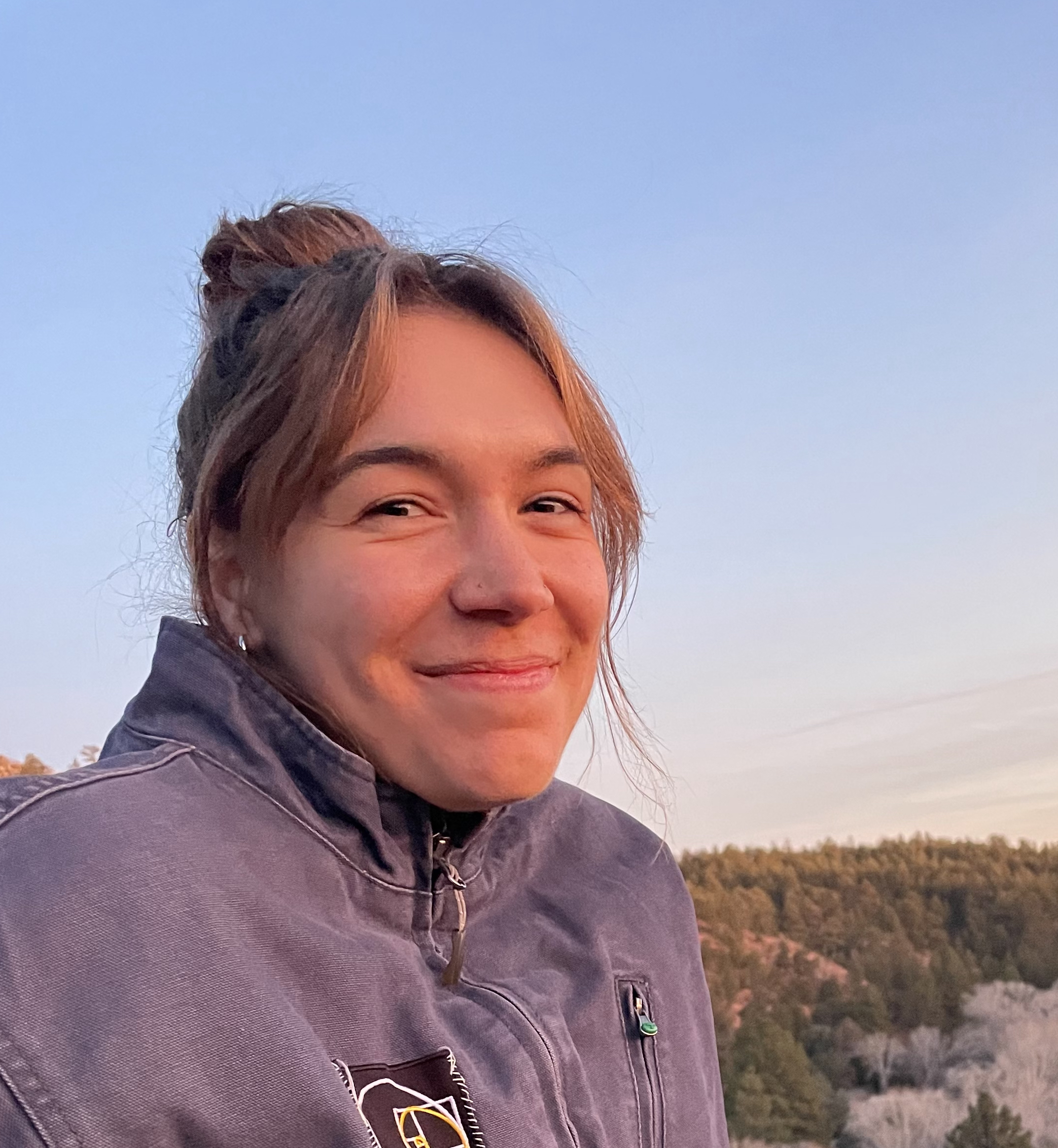Kristoffer Tjalve is an independent curator and organizer of Naive Yearly, an annual gathering of internet practitioners. He’s also the author of Naive Weekly, which is easily one of my favorite Substack newsletters, teeming with links to “the quiet, odd and poetic web.” Kristoffer holds a simultaneously patient, curious, and present approach to the internet, and his work offers much-needed reminders of our power to tend the platform as a living, collective construction.
I was excited to speak with Kristoffer about his refreshing and open-hearted realism toward our evolving internet. Avoiding the pitfalls of nostalgia, Kristoffer highlighted practices that remind him of his own agency to shape the internet as it exists today, while remembering its strange and boldly connective origins.
***
Maia Sauer: How do you think about presence on- and offline? Do these states of being feel different to you?
Kristoffer Tjalve: I can feel present online and offline. I don't necessarily think it’s a feeling exclusive to either realm. I can feel very present in a video conversation and very disengaged in a physical meeting. The quality is a feeling that has more to do with the design, the intention, and the mind that I approach the setting with. I often default to strategizing or planning, but I do think that everything meaningful in life comes from being present. Like caretaking——my son demands my presence when I'm with him.
MS: How do you approach the internet with your son?
KT: I recently started doing computer time with him. He sits in my lap, and we’re on the computer together. I prioritize sites that in some way invoke playfulness or agency. For me, it's important that he feels the computer is a tool that he can use more than passively consume. Most kids are presented with the computer as similar to TV, but it’s a tool for creation, and you can participate in it. So we’ve been writing code. I’m showing him how if you write this, that could be a different color. It's just HTML and CSS, but those languages are quite semantic in the sense that you can write what color it should be. You can actually write green, without the Hex Code.
I don’t want him to have too much computer time. It's very stimulating, and screens are very convincing. Afterward, there can be a lot of screaming, if it's been too much. We can read for hours, but if we’re doing something involving screens, there’s a different way I have to end things. So I'm mindful that screens are just much more intensive. But it's really fun.
Some of the things he’s created are amazing. One became blocks of random words, and he made background colors for each of them. It looked very Brutalist. He's not traveling the web in the same practiced way I do, so he's not thinking about audience, and he doesn't know that people could see it. It's very freeing, and I learn so much from him.

MS: I was looking back at your piece with Spencer Chang through the Syllabus Project, where you discuss Internet Walks. I’m curious when you first conceptualized this activity.
KT: The precursor to that piece was an invitation from Inês Catarina Pinto, who had a Portuguese magazine, Nevoazul. She invited me to write a guide on taking meaningful walks on the internet, and we made prompts people could take to rediscover it. I really love the internet, but I meet a lot of people who dislike it and talk negatively about it. When I ask them what the internet is for them, it's a very small scope. It's very few sites and apps that in reality shape a small part of what exists. So, the prompts' ask: How do I get people to remember that the internet is something that's very large and something that we can create and participate in?
These internet walks invite people to start exploring again, which in the 90s was a real profession. You'd employ a professional surfer. Before you had search engines, you had directories and people who tried to find as many links as possible and group them. That's why you have all these terms like Safari and Netscape, inviting people to explore, though we don’t use the same words now. It feels more gated.
MS: Yeah, you’re making me realize how the words that construct the internet are quite physical.
KT: In some ways, I’d love for the internet to have its own vocabulary that's not referencing offline things. Imagine you could talk about the internet in a language from the internet. I think that only exists in a sort of meme sense, but then that becomes self-referential and stays so on top of the cultural zeitgeist that it becomes meaningless to me. Because even though I think language should evolve, there still need to be certain parameters.
MS: I have this almost subconscious river of memes that sloshes around in my head because of my internet consumption. The word native species just came to mind to describe how they seem to emerge. But maybe memes are more like invasive species. That's a whole other conversation.
KT: I'm not on TikTok, and I'm not so into social media, so when I come across a meme, I’m like: Okay, this refers to something that in two years, no one will remember. I don't really feel like I'm missing out.
MS: It’s shocking how quickly I can look back at a meme and have no idea what the root is.
KT: They’re social, and people can gather around them. But personally, I just couldn't care less. I don't know, I can live perfectly fine without them.
MS: At this juncture in American politics, I hear more of my friends speak cynically about the future of the internet. I'm curious how you relate to those feelings.
KT: I'm not blind to everything that can be said negatively about it. For me, these conversations have existed at least since the US 2016 election, when the first big eye-opening seemed to happen. How could this president have gotten elected? And Russian influence? Suddenly, the internet was not just Obama and yes we can, but it was also like: Oh no. Initially, I was quite engaged in the whole techlash discourse, trying to read academic research about the bubble. I found some of the criticism totally justifiable and great, especially around how moderation gets outsourced to contract workers sitting in the Philippines, who are unpaid and getting post traumatic stress. These are things we should not ignore. At the same time, there are ideas that become common speech with little backing, and it’s easy to feel like all this dialogue exists above me and without me.
One thing I could do was search for things that felt meaningful to me and not necessarily meaningful to the whole world. I started to discover people’s works I liked, and then I’d go on their sites and click on their links. Slowly, it expanded, and I’d built this whole web. Since then, whenever people say the internet is bad, I’m like: Yeah, go practice. What do you really mean? And what have you done, yourself, to make it different? I'm not saying that it has to be an individual issue. Like the climate crisis, it’s also systemic. But we can meaningfully create it. We can build our own link infrastructure. It's decentralized by its whole setup, so we can actually circumvent the things that we don't like.
In my view, the alternative part of the internet is finally getting more attention. I think US politics are helping, and I think AI is helping, because it's becoming easier to put things online. And I see a wave of people starting to celebrate the internet’s idiosyncrasies and personality. The web around 2000 had to professionalize itself. Suddenly, there was e-commerce, and we learned to trust it. Then, on social media, you had to verify your real name. Now, everyone is familiar enough with the internet that we do trust it, and we’re asking for some wonder and a bit of weirdness again. Something less polished and designed.
As for fear, I find it dangerous making decisions from that point, because it's an abstraction that lives away from the present. I actually feel like hope can be similar. I don't want to lead from fear or hope, because they ask us to neglect the situation and the emotions that we currently feel. They lead us outside of ourselves.

MS: This ethos seems aligned with your annual conference, Naive Yearly.
KT: A lot of technology-related conferences are very keen on the next topic. A few years ago, all of them would talk about blockchain. Now it’s AI, and it keeps evolving, and I find it all very disinteresting. From a curatorial point of view, when you shift the theme to whatever’s coming, you’re searching for experts with questionable depth into a new field. And what I'm still interested in is open protocol. I don't want to shift that. It's not necessarily about having to find a new, fancy something to engage with, but saying: The web is enough of a topic. I'm looking for people that work with the web in different, expansive ways over a longer time.
I don't share the conference program beforehand, and I don't share the titles of the talks. Each speaker gets a specific prompt. In 2024, one example was Kaloyan Kolev, who I asked to talk about Atlantis, because Kalo has done a lot of research into the .yu, which was the top level domain of Yugoslavia, and which was the first top level domain to be erased from the internet. So I felt there was a parallel to Atlantis, and I wanted to have something around myth. That became a way of unfolding a story almost more like an essay or reflection.
There's an ability to find greater depth without hanging on to a preconceived idea of what you're going to find. I don't know exactly how to articulate this, but there's an element to our constant search for novelty or newness that is completely superficial.
MS: Depth requires three dimensionality. It can’t move in one forward direction.
KT: I guess I'm almost Amish. They have this rule that you should only use new technology if it solves something you couldn't already do. This is good, common sense. When we introduce a new technology, what do we want to use it for? Why are we introducing it? Can we support and sustain what’s going on now, with what we have? And it doesn't mean that we should never do anything new——the internet allows for a wide range of expressions, which I love.
I find that the best questions are often those that are not really easy to answer. What is love? What is sickness? What is normality? Everyone's answer would be different, and that's a good place to start. But those larger questions shouldn't be like... to AI or not to AI.
MS: My friend attended a conference recently, centering AI’s role in decoding interspecies communication. They’re using AI to translate whale songs. What he found particularly disillusioning was that this was essentially the only research of its kind being actively funded——entirely because of the AI. He was wrestling with the fact that we are learning more about whales as a result of this technology. So is AI a necessary evil? Or are we going about the inquiry completely counterintuitively? I’m curious how money necessarily infiltrates the philosophical grounding of all these conversations.
KT: It's a good point. I was in touch with a company that would have been brand-wise, very attractive, but then I would have needed to make the conference about AI in a more explicit sense. It’s not that I'm against AI, but I cannot say that it’s the only reason I'm doing this. It just feels irrelevant. AI shouldn't be the point of the conversation. It can support certain things, but it shouldn't be funded because of AI. I feel like this setup is limiting and reproduces problems. We need to reconfigure it, but funding is a real issue. There's a lot of funding for emerging technologies, but very little for anything else.
MS: How do you plan Naive Yearly to leave room for conversations to unfold depending on who's there?
KT: Every year the conference goes to a different place that inherently shapeshifts the conversations. Each session has two speakers with a break between. In those breaks, you get people out of the room where the talks happen, and you sit down on benches next to each other. It becomes very social. There's no Q and A, so there's no mediation between what was said and what people heard. I want the conversations people have to form their own minds. How do you stimulate the agency that participants have? The participants are not less worthy than the speaker——it’s a very horizontal structure.
We don't record the talks, but there’s an editor, Meg Miller, who works with the speakers and shapes the talks into written essays. They’re not the same as the talks and are shaped by what happens afterward. I like that there are no recordings, because it creates more intimacy and allows for the speakers to test things. You can be more vulnerable when there's no audience outside of those in front of you.
The internet has a bit of an obsession with permanence and archiving, which is meaningful, but I think we’re too focused on keeping our digital things. It's good that certain things decay and get forgotten, because it’s what allows other things to grow. Otherwise, you get a botanical or artificial garden, not a healthy ecosystem, or at least a very designed one. We’re too afraid of link rot. We should be more forgiving and appreciate that we don't remember everything. I think it's Borges that has this story about the man that remembers everything. In that story, you never get anywhere. Can you imagine if you had to remember everything? It would be the worst.

MS: It would be exhausting.
KT: It’s about allowing things to break, to become other things, and then staying within the conversation and the spirit. Instead of sustaining, like, early 90s website aesthetics, we can ask: what was the spirit that defined that [era]? It was one of decentralization, of globalization. It was finding yourself, finding peers online. How can I sustain that spirit? This moves into the fear piece, but also the utopia of nostalgia, and how these abstractions in time are outside where we are. It's okay to just show up now. Like, the best thing you can do as a parent when your kid needs you is to show up. It's not to have an ideal plan for what should happen, but to be there and to see the pain or joy——to witness it and stay present.
MS: As a parent, what do lullabies mean to you?
KT: During the first three years with my son, I was singing to him all the time. Songs quickly become lullabies when you sing them enough. I always went back to two songs and would sing those like fifty times a day. One song is about a ladybird and a snail and how, because of rain, they go into the snail house and become best friends. It's a random song, and it’s not the content that means so much to me. But I think the practice is very meaningful. I'm ashamed to admit that my own lullabies are like putting on AirPods and listening to sports podcasts that I fall asleep to.
Sometimes, I’d be elsewhere in my mind while putting my son to sleep. I’d have the idea that I could sing without thinking or while reading, because it sort of existed in another world. But whenever I would try, I’d repeat certain verses or change it, and my son would notice the rhythm breaking. It would disturb the purpose, because I’d broken our pattern.
How do you feel about changing lullabies? Because I find a lot of children's songs have kind of stupid words——things you wouldn't say in this day and age, or shouldn't say.
MS: I’ve chosen to hum or use random syllables rather than using certain words I don’t like. Your question does make me contend with how the people crafting lullabies are usually not children. They’re adults drawing from darker, longer lived experiences.
KT: And they're almost like fairy tales, in a moralizing sense, or the Grimm brothers. Those are also very dark. Why are we introducing these ideas around the sleep state? What is so important to communicate at that moment? Some lullaby stories age well, but then there are some where you're like: Hey, this is enforcing the patriarchy! There’s a kind of soft power to lullabies. So I'm changing lyrics in certain cases, but sooner or later, he’ll discover I’m saying things wrong!
MS: We spoke with Natalia Schwien Scott about the value of keeping fear in these pre-sleep songs, because kids are innately aware that death, violence, and darkness exist. To her, it feels truer to weave that reality into sleep and affirm that we can anticipate tomorrow, even while the world is challenging today.
KT: We co-sleep, so when my son wakes up, we can say that was just a dream. Maybe the issue would be if we put him to sleep in a fear state and left him alone. I do want him, of course, to deal with hard emotions, but I want him to know that there is someone there for him. He's four, like, does he really need to be able to solve the fears of the world? I'm still overwhelmed by them! Yes, kids already know about death and they understand these concepts. I don’t think they or anyone else should be left alone with them. Fear, together.



